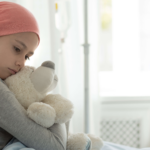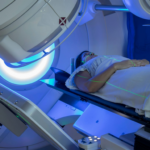
Cancer is not just a physical ailment but a profound emotional and psychological challenge for patients and their families. In the face of such a diagnosis, the journey through treatment can be arduous, often fraught with pain, uncertainty, and emotional turmoil. Palliative care emerges as a crucial component in the holistic management of cancer, focusing not only on physical symptoms but also on the emotional well-being of patients.
Understanding Palliative Care
Palliative care is specialized medical care aimed at improving the quality of life for patients facing serious illnesses like cancer. Unlike curative treatments that target the disease itself, palliative care focuses on alleviating symptoms, managing pain, and providing emotional support to enhance overall well-being. It is a comprehensive approach that involves a team of healthcare professionals, including doctors, nurses, social workers, and counselors, working together to address the multifaceted needs of patients and their families.
Benefits of Palliative Care
- Pain Management:
Cancer often brings with it debilitating pain that can significantly impact a patient’s quality of life. Palliative care specialists are trained to manage pain effectively through various medications, therapies, and interventions tailored to individual needs. By alleviating pain, patients can experience improved comfort and better functionality in their daily lives.
- Emotional Support:
Dealing with cancer is emotionally taxing, both for the patient and their loved ones. Palliative care places a strong emphasis on providing psychological and emotional support. This support can include counseling, therapy sessions, and support groups that help patients cope with anxiety, depression, and fear associated with their illness. By addressing these emotional aspects, palliative care enhances overall mental well-being and resilience.
- Symptom Management:
Beyond pain, cancer and its treatments can lead to a range of distressing symptoms such as nausea, fatigue, insomnia, and loss of appetite. Palliative care teams work closely with patients to manage these symptoms effectively, using a combination of medications, therapies, and lifestyle adjustments. This proactive management not only improves physical comfort but also allows patients to maintain a higher quality of life throughout their treatment journey.
- Enhanced Communication:
Effective communication is vital in cancer care, especially when discussing treatment options, prognosis, and end-of-life preferences. Palliative care professionals facilitate clear and compassionate communication between patients, families, and other healthcare providers. This ensures that treatment decisions are in harmony with the patient’s values and aspirations, fostering a sense of autonomy and dignity.
- Family Support:
Cancer impacts not only the patient but also their family members who often serve as primary caregivers and emotional anchors. Palliative care extends its support to family members by providing education, counseling, and respite care options. This holistic approach helps families navigate the challenges of caregiving while maintaining their own well-being.
The Role of Palliative Care in Cancer Care Pune Clinic, Pimple Saudagar
Located in Pimple Saudagar, Cancer Care Pune clinic is dedicated to providing comprehensive palliative care services tailored to the needs of cancer patients and their families. Led by Dr. Jagdish Shinde, renowned as one of the best oncologists in Pune, the clinic offers a compassionate approach that integrates advanced medical interventions with empathetic support. Dr. Shinde’s expertise ensures that patients receive personalized care plans that prioritize both physical comfort and emotional well-being.
Summary
Palliative care plays a pivotal role in supporting the emotional well-being of cancer patients by addressing pain, managing symptoms, providing emotional support, enhancing communication, and supporting families. For patients at Cancer Care Pune clinic in Pimple Saudagar, under the expert guidance of Dr. Jagdish Shinde, palliative care represents not just a medical intervention but a compassionate partnership that empowers patients to live with dignity and comfort amidst their cancer journey. By focusing on holistic care and emotional support, palliative care continues to redefine the landscape of cancer treatment, ensuring that patients receive the comprehensive support they need to navigate this challenging chapter in their lives
Cancer is not just a physical ailment but a profound emotional and psychological challenge for patients and their families. In the face of such a diagnosis, the journey through treatment can be arduous, often fraught with pain, uncertainty, and emotional turmoil. Palliative care emerges as a crucial component in the holistic management of cancer, focusing not only on physical symptoms but also on the emotional well-being of patients.
Understanding Palliative Care
Palliative care is specialized medical care aimed at improving the quality of life for patients facing serious illnesses like cancer. Unlike curative treatments that target the disease itself, palliative care focuses on alleviating symptoms, managing pain, and providing emotional support to enhance overall well-being. It is a comprehensive approach that involves a team of healthcare professionals, including doctors, nurses, social workers, and counselors, working together to address the multifaceted needs of patients and their families.
Benefits of Palliative Care
- Pain Management:
Cancer often brings with it debilitating pain that can significantly impact a patient’s quality of life. Palliative care specialists are trained to manage pain effectively through various medications, therapies, and interventions tailored to individual needs. By alleviating pain, patients can experience improved comfort and better functionality in their daily lives.
- Emotional Support:
Dealing with cancer is emotionally taxing, both for the patient and their loved ones. Palliative care places a strong emphasis on providing psychological and emotional support. This support can include counseling, therapy sessions, and support groups that help patients cope with anxiety, depression, and fear associated with their illness. By addressing these emotional aspects, palliative care enhances overall mental well-being and resilience.
- Symptom Management:
Beyond pain, cancer and its treatments can lead to a range of distressing symptoms such as nausea, fatigue, insomnia, and loss of appetite. Palliative care teams work closely with patients to manage these symptoms effectively, using a combination of medications, therapies, and lifestyle adjustments. This proactive management not only improves physical comfort but also allows patients to maintain a higher quality of life throughout their treatment journey.
- Enhanced Communication:
Effective communication is vital in cancer care, especially when discussing treatment options, prognosis, and end-of-life preferences. Palliative care professionals facilitate clear and compassionate communication between patients, families, and other healthcare providers. This ensures that treatment decisions are in harmony with the patient’s values and aspirations, fostering a sense of autonomy and dignity.
- Family Support:
Cancer impacts not only the patient but also their family members who often serve as primary caregivers and emotional anchors. Palliative care extends its support to family members by providing education, counseling, and respite care options. This holistic approach helps families navigate the challenges of caregiving while maintaining their own well-being.
The Role of Palliative Care in Cancer Care Pune Clinic, Pimple Saudagar
Located in Pimple Saudagar, Cancer Care Pune clinic is dedicated to providing comprehensive palliative care services tailored to the needs of cancer patients and their families. Led by Dr. Jagdish Shinde, renowned as one of the best oncologists in Pune, the clinic offers a compassionate approach that integrates advanced medical interventions with empathetic support. Dr. Shinde’s expertise ensures that patients receive personalized care plans that prioritize both physical comfort and emotional well-being.
Summary
Palliative care plays a pivotal role in supporting the emotional well-being of cancer patients by addressing pain, managing symptoms, providing emotional support, enhancing communication, and supporting families. For patients at Cancer Care Pune clinic in Pimple Saudagar, under the expert guidance of Dr. Jagdish Shinde, palliative care represents not just a medical intervention but a compassionate partnership that empowers patients to live with dignity and comfort amidst their cancer journey. By focusing on holistic care and emotional support, palliative care continues to redefine the landscape of cancer treatment, ensuring that patients receive the comprehensive support they need to navigate this challenging chapter in their lives




